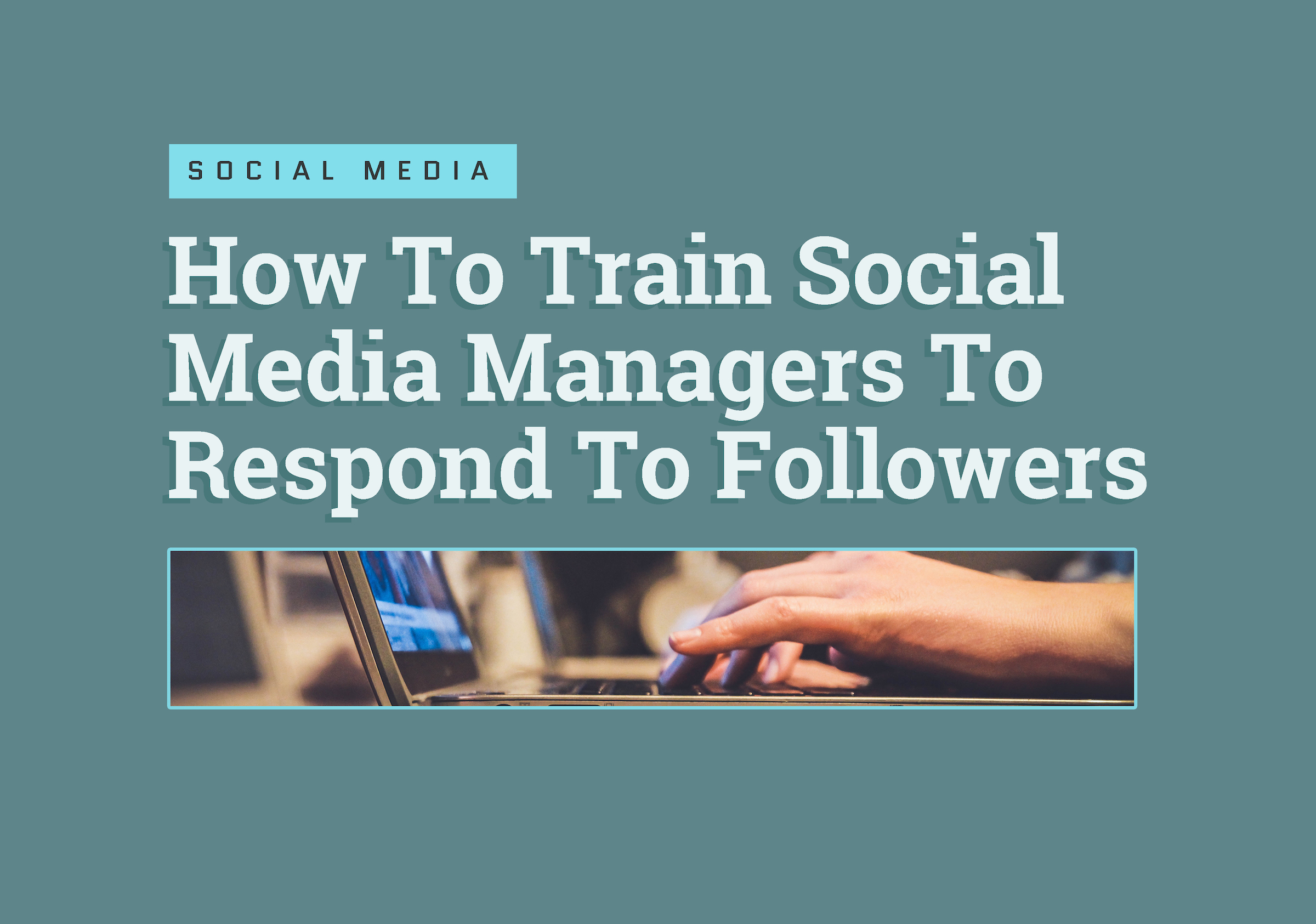How To Train Social Media Managers To Respond To Followers
[x_author title=”About the Author”]
Why it’s Critical to Respond to Every Social Media Follower, Even the Angry Ones
Thanks (or no thanks) to social media, we’re inundated daily with bad news about good companies… an airline losing a beloved family dog; a cruise ship with a food-borne illness; a car manufacturer with a defect linked to accidents; a coffee chain changing up its rewards program.
 My first reaction is usually to be shocked, sad or mad.
My first reaction is usually to be shocked, sad or mad.
My second reaction is, “that company’s poor social media team…”
You see, these situations are crisis level. They’re the instances that cause social media teams to panic their way into a war room with their chief officers and lawyers and figure out the best reactionary plan. And hopefully those teams are well skilled in social media crisis management. That’s another blog for another time, but if a company doesn’t have a crisis management plan in place, leadership needs to hire an expert, grab the lawyers, and get one on paper.
I mention these frightening scenarios because I want to scare a few social media managers out there. Really. Some managers might need fear to motivate them to adopt a good social media response plan in general, as part of their daily management routine. If they have solid response habits day to day, they’re in great shape to stay on top of the good, bad and ugly that come with managing a company’s social networks. After all, a company’s reputation and livelihood could be at stake. Yes, as a matter of fact, that is a lot of pressure.
 So, let’s get to the easy stuff.
So, let’s get to the easy stuff.
How to Respond to Social Media Fans
A good company approaches social media customers exactly the same as its call-in and walk-in customers. Social customers are every bit as important as the ones sitting in the lobby. Social media should be a true extension of a company’s customer care strategy.
- Respond to everything. Yes, everything. On every network. This means watching multiple times a day, every day. Consistency is key, so your fans know they can depend on you for a response.
- If it’s a positive comment, give it at least a like or a quick “Thanks for sharing!” Something personal is even better, like, “Thanks, Jane! We’re glad you loved your widget.”
- If it’s a viral post getting dozens of comments, or even hundreds, be active on some of them, but you might never catch them all, and that’s OK.
- If it’s a positive review, give it a heartfelt thank you and consider asking the person’s permission to share the recommendation on social media and your website.
- If it’s a question, answer it as quickly as possible (within two hours). If you don’t know the answer, acknowledge that you hear the customer and are seeking out the answer.
- If it’s a negative comment or review, comment as quickly as possible with empathy and understanding. People sometimes just want to vent, and they’ll often feel better knowing that the company has heard their point of view.
- Be human. It’s easy to be mad at a company, but it’s hard to be mad at a person. Once the customer views your company as a team of human beings, she might simmer down. This might mean that you have to tweak the verbage the lawyer handed you. (Sorry, lawyers.) Customers don’t want to read legal eaze. They want plain English, please.
- If the company was in the wrong, sincerely apologize. If the wrongdoing is debatable, make a best effort to acknowledge the inconvenience and get the customer on another line of communication for follow up. “Jane, we are looking into this issue and would like to get some additional information from you. Please private message us with your contact information or give us a call/email…”
- Assure the customer that the mistake/problem is being addressed so that it doesn’t happen again.
- Ask for additional feedback and suggestions.
- Depending on the situation, offer a coupon or incentive to win back the customer’s business. (Not necessary all the time, but helpful in some cases in which a customer could be lost.)
- If the complaint is commonly received, consider a video response from a company leader, and make sure it’s easy for your fans to find.
-
- “But we’ll introduce the issue to people who didn’t even know it existed,” you say. Do it anyway. It’s the right thing to do, and your fan base will see you as someone who listens, cares and responds responsibly.
-
 Once the complaint is satisfactorily resolved, depending on the situation, you might be able to kindly ask the customer if he is willing to change his review or comment. (Who knows. The customer might post a new, positive comment that can do wonders for your brand.) If a customer is unwilling to remove a negative review, the best course of action is to drown it with positive reviews, so ask your favorite customers for one.
Once the complaint is satisfactorily resolved, depending on the situation, you might be able to kindly ask the customer if he is willing to change his review or comment. (Who knows. The customer might post a new, positive comment that can do wonders for your brand.) If a customer is unwilling to remove a negative review, the best course of action is to drown it with positive reviews, so ask your favorite customers for one.
- If it’s a positive comment, give it at least a like or a quick “Thanks for sharing!” Something personal is even better, like, “Thanks, Jane! We’re glad you loved your widget.”
“But wait, I’ve been deleting all the negative comments,” you say.
Well, stop. Your fans are on to you, and what you’ve taught them is that you aren’t willing to face your problems or listen to your customers.
The only comments you should ever be allowed to delete are those containing inappropriate material like explicit language and images or those in which libel or defamation could be at play. (Get the lawyer involved and make a plan.)
If you have been deleting comments, start fresh now and start gaining your fans’ trust again.
“But this sure sounds time consuming,” you say.
That’s why social media management is a big job. Many companies are fielding customer comments and questions from multiple social networks, apps, email marketing, live video and more every day, and it takes a dedicated, thorough, watchful eye every single day, even weekends. Smart companies know that social media management shouldn’t be left to the brand-new intern. It’s a critical piece of your company’s digital marketing strategy and a true extension and reflection of your customer service. Social media requires a true expert or three to keep your company’s image, reputation and brand in a good light.
Hopefully a few companies out there realize they’re missing a big opportunity and are motivated to adopt outstanding social media response practices that align with their customer care strategies. It’s crucial to face social media responses head on, with active listening, an earnest approach, consistency and fairness that takes customer feedback to heart.
If you have any questions, please reach out via email or on any of Expio’s social platforms. The Expio team is always listening.









Comments (5)
Very informative – thanks Jody
Agree. Jody brought some excellent insight here!
Awesome blog!
Thanks a bunch! Holler if you have additional wisdom to add!
[…] Read this blog for more tips on a Facebook response policy. […]